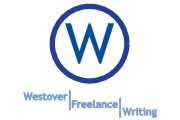 Blogging self-help guru Steve Pavlina has a post outlining how to maximize your creative output.
Blogging self-help guru Steve Pavlina has a post outlining how to maximize your creative output.He makes some great points in his post, and I just wanted to comment on how they apply specifically to writers. Listed below are his 7 Rules, followed by my thoughts on each.
1. Define a clear purpose
As a writer, it's not always easy to say "I'm now going to write x number of pages on (insert topic here)." However, as professionals, that's exactly what we need to do. Sit down with a clear goal in mind, even if that goal is simply to fill a set amount of time or a certain number of pages in free writing. Every time you do something as a writer, it should have a purpose. Here's a few preset purposes that I'm trying to integrate into my day to day work.
- Brainstorm x number of ideas
- Pick one of these ideas and develop it
- Write one full query letter/e-mail, then send it
- Contact this person
- Learn at least one thing about my topic
- Find at least one article idea
- Find five new markets to query
- Finish a first draft, no matter how crappy it is
The list might go indefinitely. The point is that if any writer is to get the most out of their time, they need to direct their energies a bit. (I'll post more on this later.)
2. Identify a compelling motive
As a writer, there are at least two motives that should always motivate us a little. One is seeing our names in beautiful black ink. The other is getting paid, earning the dinero, bringing in some moolah. Even on a bad day, while working on an article that's about as inspiring as mud, these two things ought to at least get you going a little bit.
Then, there's the added motivators of editors and deadlines.
Even more than this, find stories you really want to write. Find topics that excite you, things that interest you. Carve out a comfortable niche in this area, and your motivational needs should be a lot easier to meet.
3. Architect a worthy challenge
Every piece of writing should challenge you to do your best work. I know it doesn't always, but it should. The better your work, the better your image and the more freedom you have to earn some actual money and write what you want to write.
4. Provide a conducive environment
This is one of those points that I agree wholeheartedly with, but almost wish hadn't been mentioned. Yes, you should find the best place to work that you can. However, that doesn't mean you obsess over every detail, constructing your own little Fortress of Solitude in which to work.
For a writer, the most conducive environment is the one that has your butt in front of the computer and your fingers on the keyboard. Typing. Anything else is a distraction, and therefore not conducive to your work, which is actually writing.
5. Allocate a committed block of time.
This is absolutely necessary, especially for anyone who intends to make any serious effort at writing for a living. It's a business, treat it as such. This means scheduling time and following that schedule.6. Prevent interruptions and distractions.
Like I mentioned about the conducive environment, the most important issue is that you get writing. You probably don't need to build a private study onto your home. Get yourself a computer, get yourself a pair of head phones, and then just write. let those around you know that you're "at work", then get to work. Don't obsess about the things that might disturb your writing - just write.
7. Master your tools.
This is a must. You have a number of tools as a writer, and the better you know how to use them, the more effective you'll be. A writer today is better equipped to research and write than any writer in any other age. You've got the Internet and e-mail, you've got a word processor, you've got a phone. heck, those things are even made highly portable these days. You can literally do it all with just a laptop and a cell phone.
However, you need to know your tools.
Learn your word processor inside and out. Know the important functions and keyboard shortcuts. Figure out how to create columns and build tables and insert pictures. That's all basic stuff. Know the basics the same way you know how to tie your shoes.
Learn how to do serious research on the Internet. Google and Wikipedia are great, but they're like baby food. A professional wants something more substantial. Learn about databases, online newsletters, associations, etc. (I'm actually going to do a post or three about this very topic in the near future.)
Finally, always be improving your ability to write. Words are your stock in trade. Grammar is more than just your friend. Formats and styles are need to know information for you.
If you're a doctor, you know how the body works, and you know it better than anyone else. Writers should be equally knowledgeable about the language they write in.



No comments:
Post a Comment